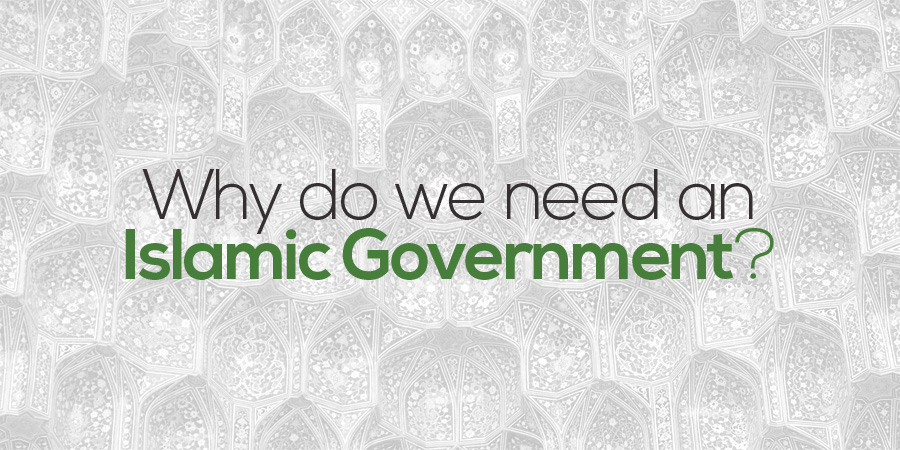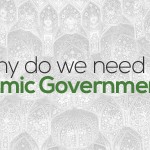Why Do We Need an Islamic Government? (4)

[Unfortunately] the imperialists and the tyrannical self-seeking rulers have divided the Islamic homeland. They have separated the various segments of the Islamic ummah from each other and artificially created separate nations.
There once existed the great Ottoman State, and that, too, the imperialists divided. Russia, Britain, Austria, and other imperialist powers united, and through wars against the Ottomans, each came to occupy or absorb into its sphere of influence, part of the Ottoman realm. It is true that most of the Ottoman rulers were incompetent, that some of them were corrupt, and that they followed the monarchical system.
Nonetheless, the existence of the Ottoman State represented a threat to the imperialists. It was always possible that righteous individuals might rise up among the people and, with their assistance, seize control of the state, thus putting an end to imperialism by mobilizing the unified resources of the nation.
Therefore after numerous prior wars, the imperialists at the end of World War I divided the Ottoman State, creating in its territories about ten or fifteen petty states.1 Then each of these was entrusted to one of their servants or a group of their servants, although certain countries were later able to escape the grasp of the agents of imperialism.
In order to assure the unity of the Islamic ummah, in order to liberate the Islamic homeland from occupation and penetration by the imperialists and their puppet governments, it is imperative that we establish a government. In order to attain the unity and freedom of the Muslim peoples, we must overthrow the oppressive governments installed by the imperialists and bring into existence an Islamic government of justice that will be in the service of the people.
The formation of such a government will serve to preserve the disciplined unity of the Muslims; just as Fātimah az-Zahrā2 (‘a) said in her address: “The Imamate exists for the sake of preserving order among the Muslims and replacing their disunity with unity”.
Through the political agents they have placed in power over the people, the imperialists have imposed on us an unjust economic order, and thereby divided our people into two groups: oppressors and oppressed. Hundreds of millions of Muslims are hungry and deprived of all forms of health care and education, while minorities comprised of the wealthy and powerful live a life of indulgence, licentiousness, and corruption.
The hungry and deprived have constantly struggled to free themselves from the oppression of their plundering overlords, and their struggle continues to this day. But their way is blocked by the ruling minorities and the oppressive governmental structures they head. It is our duty to save the oppressed and deprived. It is our duty to be a helper to the oppressed, and an enemy to the oppressor. This is nothing other than the duty that the Commander of the Faithful (‘a) entrusted to his two great offspring3 in his celebrated testament: “Be an enemy to the oppressor and a helper to the oppressed.”4
The scholars of Islam have a duty to struggle against all attempts by oppressors to establish a monopoly over the sources of wealth or to make illicit use of them. They must not allow the masses to remain hungry and deprived while plundering oppressors usurp the sources of wealth and live in opulence.
The Commander of the Faithful (‘a) says: “I have accepted the task of government because God, Exalted and Almighty, has exacted from the scholars of Islam a pledge not to sit silent and idle in the face of gluttony and plundering of the oppressors, on the one hand, and the hunger and deprivation of the oppressed, on the other.” Here is the full text of the passage we refer to:
“I swear by Him Who causes the seed to open and creates the souls of all living things that were it not for the presence of those who have come to swear allegiance to me, were it not for the obligation of ruling now imposed upon me by the availability of aid and support, and were it not for the pledge that God has taken from the scholars of Islam not to remain silent in the face of the gluttony and plundering of the oppressors, on the one hand, and the harrowing hunger and deprivation of the oppressed, on the other hand—were it not for all of this, then I would abandon the reins of government and in no way seek it. You would see that this world of yours, with all of its position and rank, is less in my eyes than the moisture that comes from the sneeze of a goat.”5
How can we stay silent and idle today when we see that a band of traitors and usurpers, the agents of foreign powers, have appropriated the wealth and the fruits of labor of hundreds of millions of Muslims—thanks to the support of their masters and through the power of the bayonet—granting the Muslim not the least right to prosperity? It is the duty of Islamic scholars and all Muslims to put an end to this system of oppression and, for the sake of the well-being of hundreds of millions of human beings, to overthrow these oppressive governments and form an Islamic government.
Source: Islamic Government, Imām Khomeini
References:
- It may be apposite to quote here the following passage from a secret report drawn up in January 1916 by Thomas E. Lawrence, the British organizer of the so-called Arab revolt led by Sharīf Husayn of Mecca: “Husayn’s activity seems beneficial to us, because it matches with our immediate aims, the breakup of the Islamic bloc and the defeat and disruption of the Ottoman Empire…. The Arabs are even less stable than the Turks. If properly handled they would remain in a state of political mosaic, a tissue of small jealous principalities incapable of political cohesion.” See Philip Knightley and Colin Simpson, The Secret Lives of Lawrence of Arabia (New York, 1971), p. 55.
- Fātimah az-Zahrā: Fātimah, the daughter of the Prophet and wife of Imām ‘Ali. For her biography, see Fātimah the Gracious (Qum: Ansariyan Publications). (Pub.)
- I.e., Hasan and Husayn.
- Nahj al-Balāghah, Letter 47. See English translation of Nahj al-Balāghah, Peak of Eloquence with commentary and its original Arabic text (Qum: Ansariyan Publications), http://www.al-islam.org/nahjul/index.htm. (Pub.)
- Nahj al-Balāghah, Sermon 3 (The famous Shaqshaqiyyah Sermon).See Nahj al-Balāghah, ed. Subhi as-Sālih. (Pub.)

